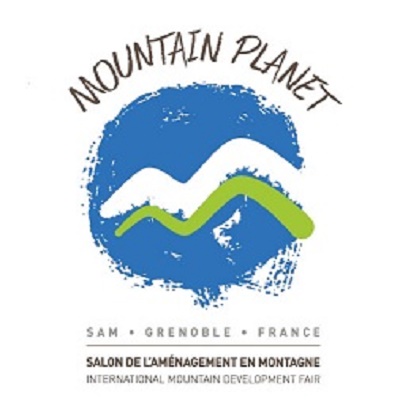Vitalpin KlimaInvestment Sponsorship Award Goes To Christophorus For E-Buses In Zillertal Glacier Region

Sustainable travel in the Zillertal - this is made possible by the four new electric buses from Christophorus Busbetriebs GmbH, which have been providing emission-free passenger transport since March 2023. The battery-powered vehicles are integrated into the public transport network - an initiative for sustainable mobility that has now also been awarded the Vitalpin Climate Investment Promotional Prize.
“Climate protection and environmental awareness have always been very important at Christophorus. To do this, we always dare to take unconventional steps, which we are convinced will lead us to a more sustainable future. I am all the more pleased that our commitment was also recognized by the Vitalpin KlimaInvestment Förderpreis”, says Andreas Kröll, Managing Director of Christophorus.
The decision of the jury is justified by its chairman Dr. Franz Fischler with the pioneering role that Christophorus is playing with the initiative: "Christophorus' initiative is worthy of an award for several reasons: It makes a significant contribution to reducing greenhouse gas pollution. Proof is provided that e-buses also work in mountainous regions and there is a great role model effect that can encourage both tourism professionals and guests to imitate it.”
The project: E-buses in the Zillertal glacier region / Zillertal Alps High Mountain Nature Park
The four newly purchased electric buses from Christophorus are operated with environmentally friendly green electricity and have been on the road since March 2023. Their use saves around 122,500 liters of diesel fuel and thus more than 1,620 tons of environmentally harmful CO2 emissions per year.
Concerns about the actual range of the e-buses are countered at Christophorus with the useful advantage of modern recuperation technology: Energy recovery when driving downhill helps each of the buses to cover an average of 300 kilometers per day without emissions.
The four vehicles primarily circulate in the area of the Zillertal Glacier Region / Zillertal Alps High Mountain Nature Park. Here you are faced with very special challenges in local passenger transport, explains Andreas Kröll: “Especially in and for high alpine locations, an all-round gentle form of transport is more important than ever. At the same time, the driving conditions on the mountain routes are a lot more demanding than in the valley.” According to the travel expert for Sardinia and numerous other destinations, this can only be countered with the use of innovative technologies Passenger comfort can be increased through more spacious and quiet passenger compartments.
The electricity required to operate the buses also comes from sustainable production. For the Christophorus company headquarters in the Tyrolean Zillertal, an electricity supplier was chosen that supplies the location entirely with electricity from renewable energies. The four e-buses are also charged here, so that sustainable mobility takes place on a holistic level.
Impact of mobility on the environment - a summary
In general, the changeover to environmentally friendly forms of propulsion is in full swing, especially in private transport. In many areas of local public transport, however, there is an urgent need to catch up. By using electrically powered buses, Christophorus is clearly taking on an important pioneering role. Standstill is not known here: Further investment steps have already been taken - three more electric buses will be delivered this year. At Christophorus, the essential decarbonization of public transport is being driven forward in a forward-looking and purposeful manner.
When it comes to e-buses, a key challenge is creating the required and cost-intensive charging infrastructure. New lines and charging stations including coolers often have to be installed here. And if you assume a purchase price of between 500,000 and 600,000 euros per bus, the e-buses themselves are about twice as expensive as diesel-powered alternatives.
On the other hand, there are the numerous advantages of e-buses, which can be seen on several levels in the short, medium and long term. Because while switching from a car (137 grams of CO2 per passenger-kilometer) to a normal long-distance bus (23 grams of CO2 per passenger-kilometer) already brings significant emission savings, e-buses emit no CO2 at all.
Other strengths of e-buses compared to their diesel-powered counterparts are the lower noise level, but also the lower operating costs: Because while you have to reckon with costs of 35 to 50 euros per 100 kilometers for diesel buses, the energy costs for electric buses are only 9 to 12 Euro. [2,3]
The Vitalpin Climate Investment Promotional Prize 2022/23 – focus on energy
Christophorus' commitment to more sustainable mobility was able to convince the expert jury of the Vitalpin Climate Investment Promotional Prize, which was awarded for the second time on May 23, 2023. Initiated by Vitalpin and ClimatePartner, the prize honors initiatives related to climate protection in the Alpine region. The latest issue was all about energy and its sustainable, economical use.
The interdisciplinary jury chaired by former EU Commissioner Dr. Franz Fischler selected three winning projects and awarded two recognition prizes; the volume of the subsidy pot was 70,000 euros, made up of voluntary bonus payments from companies. In addition to the two recognition prizes, each worth EUR 5,000, the three winning projects each received EUR 20,000.
In addition to Christophorus, this year's winning projects also include the Ayurveda Resort Sonnhof. Here it was possible to show how energy-intensive SPA hotels can cover their electricity requirements in an innovative and environmentally friendly way. The initiative is rounded off by sustainable mobility offers for guests and food from local production.
Another winning project comes from the Kaunertaler Gletscherbahnen; Here, the photovoltaic systems and other plans to complete the transition to an energy-autonomous ski area were convincing.
The two recognition prizes went to South Tyrol: On the one hand, Prinoth, a manufacturer of snow groomers, received an award for an electrically powered snow groomer. Another recognition award went to the Naturhotel Pfösl from Deutschnofn, which is taking comprehensive measures in the areas of regenerative energy production and is taking further steps towards more sustainability.














